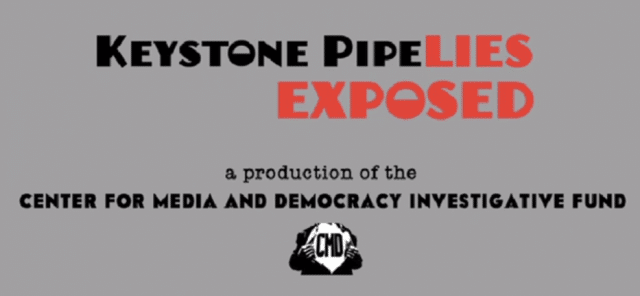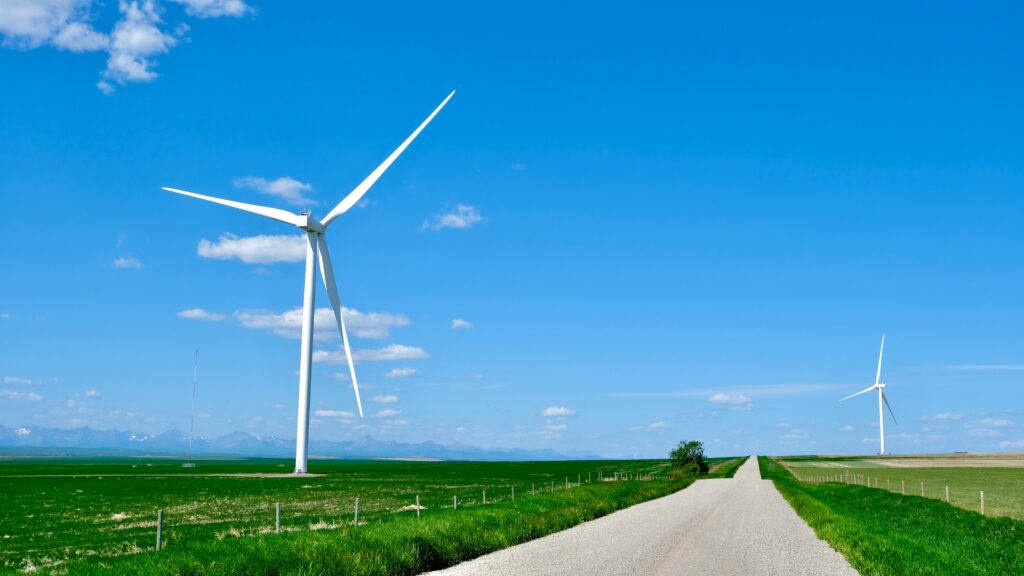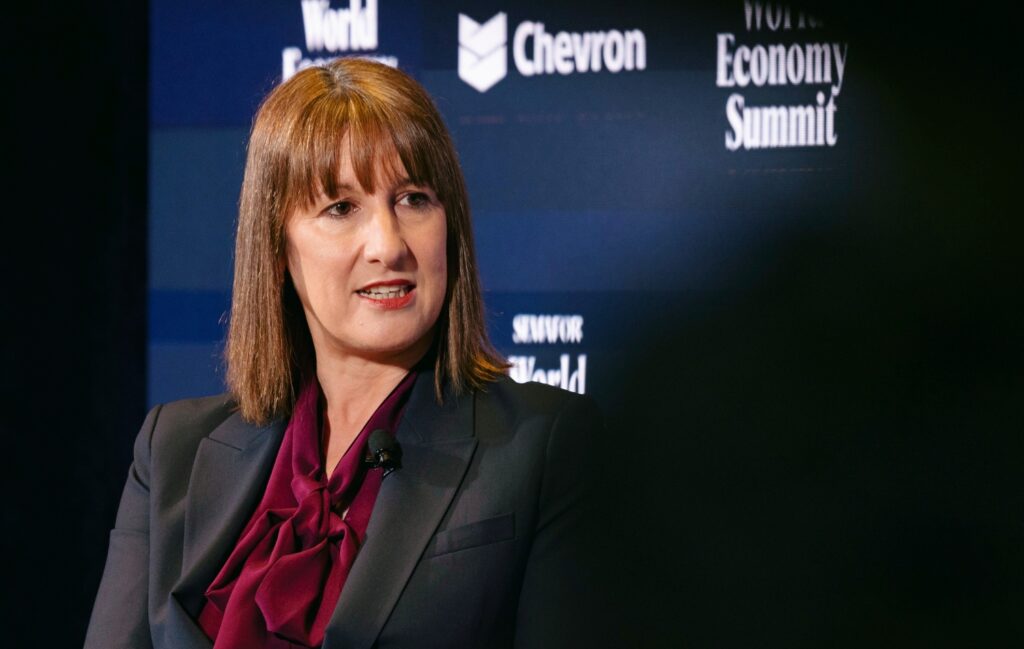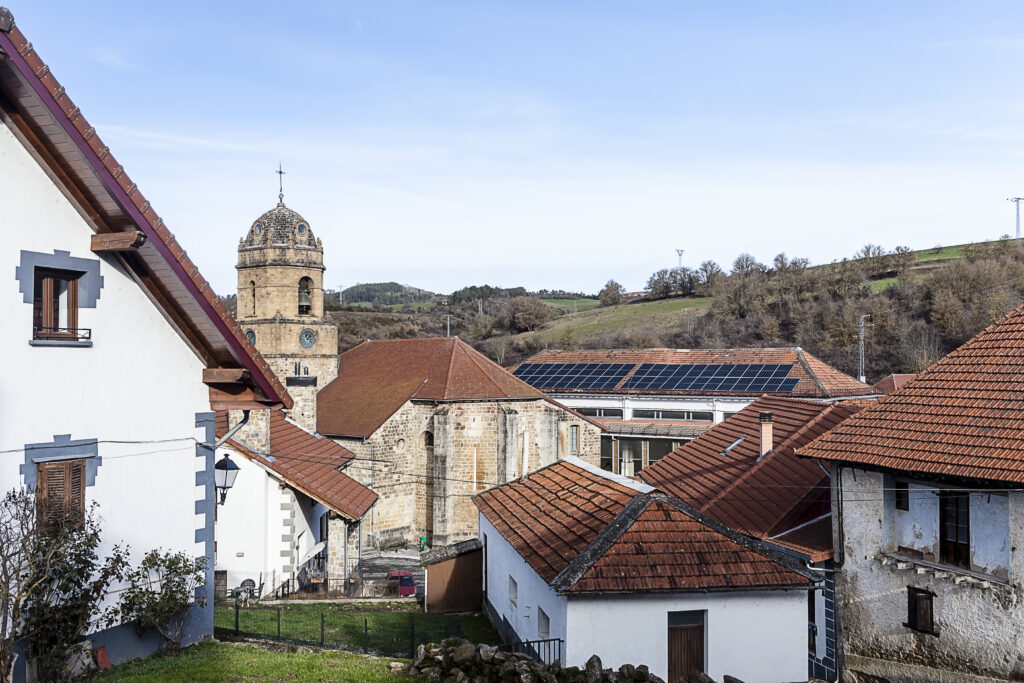On Tuesday, the Center for Media and Democracy released a new short film that sets out to debunk the many false claims — the films calls them “pipeLIES” — used by promoters of the Keystone XL pipeline. These industry talking points, many of which are repeated without verification by mainstream media sources, have corrupted any reasonable public discourse on the pipeline, and the film’s producers hope that using the video medium to expose the mistruths will lead to better public understanding of the true risks of the pipelines.
The film, Keystone PipeLIES Exposed, takes a close and critical look at both ends of the proposed pipeline — from the open pit tar sands mines in Alberta to the toxic refineries in Port Arthur, Texas. But the meat of the 23-minute film looks at the pipeline itself — the route, the construction jobs, the spill risks, the communities and ecosystems that would be made vulnerable.
While traveling down the pipeline, so to speak, the film pays special attention to the talking points and falsehoods — the massively inflated job creation claims, promises of lower gas prices, and so on — that are constantly repeated by those who stand to profit from the pipeline’s construction, and often by a mainstream media too lazy to verify them.
Emmy Award-winning journalist Dave Saldana wrote, directed and produced the film. Saldana is also an attorney, and says this background was particularly useful in exploring and debunking many of the oil industry’s suspicious claims. Saldana says:
I looked at the claims as a lawyer; what did the evidence show me? The evidence shows that its job creation claims are grossly inflated; that better, greener alternatives would aid America’s energy independence and put more Americans to work for a longer time than the pipeline; and that the pumping of tar sands oil across the U.S. primarily for export to foreign countries poses enormous risks to America’s water supply, food supply, and air quality. And that’s before you even get to what it does to climate change.”
Here’s the film. You can also check out the PipeLIES Exposed site to find references for all the arguments debunking the lies.
Keystone PipeLIES Exposed from Center for Media and Democracy on Vimeo.
Specifically, here are few of the “pipeLIES” that are exposed through the film:
- KXL will not directly create 100,000+ jobs but 3,900 short-term and 50 long-term ones.
- KXL will not produce billions in corporate tax revenues, due to tax loopholes most Americans have never heard of.
- KXL will not be safe from disastrous leaks, but it will be exempt from corporations paying into a key disaster insurance fund because it is “unconventional oil,” which puts taxpayers on the hook for billions.
- KXL will not make America energy independent; and, in fact, most of the tar sands oil is planned for export from the Gulf of Mexico via tankers to foreign countries.
- KXL will not be climate neutral – in spite of that suggestion made in an assessment prepared by an industry-linked group – but it will speed climate change and global instability.
Besides the point-by-point dismantling of deceptive talking points, what I feel the films does best is connect the dots and data points across the Keystone XL debate and increasingly risky realm of transporting unconvential oils like tar sands crude and heavy shale.
For instance, in a quick three minutes, Saldana contrasts TransCanada’s promises of pipeline safety with the recent spills in Mayflower, Arkansas and into Michigan’s Kalamazoo River, both of which have ruined lives and livelihoods.
Connecting another dot, Saldana shows that such spills are also costing taxpayers hundreds of millions of dollars, as operators of tar sands pipelines are exempt from contributions to the Oil Spill Liability Trust Fund, which helps pay for these unfortunate, if predictable, incidents.
And that’s just the three minutes on spills. PipeLIES Exposed takes the same hatchet to claims of energy independence and gas prices and economic benefits and promises of jobs. It’s well worth checking out and sharing widely.
Subscribe to our newsletter
Stay up to date with DeSmog news and alerts







